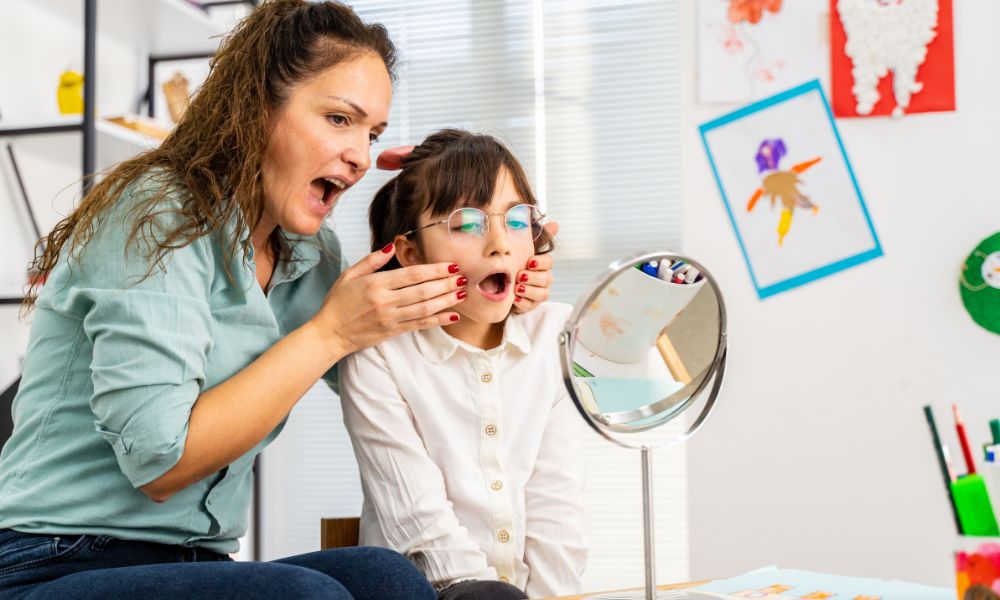As a Certified Practicing Speech Pathologist based in Australia, my experience in the field has allowed me to work with individuals of all ages and backgrounds, helping them overcome various speech and language challenges.
Today, I’m excited to share some of the best speech therapy techniques that have proven to be incredibly effective in facilitating improved communication skills.
Articulation Therapy
One of the foundational techniques in speech therapy is articulation therapy. This approach is designed to target specific speech sounds that individuals may struggle with. Through exercises and drills, I assist my clients in refining their pronunciation, addressing issues like lisps or misarticulations.
Language Intervention
Language intervention is a versatile technique that plays a crucial role in enhancing language skills. Whether it’s expanding vocabulary, refining sentence structure, or improving comprehension, I employ various activities such as storytelling, word games, and picture cards to help clients strengthen their language abilities.
Fluency Shaping Techniques
Stuttering can be a significant hurdle for many individuals. That’s where fluency shaping techniques come into play. By employing strategies like slow and deliberate speech, breath control exercises, and prolonged speech, I work with my clients to achieve smoother and more fluent communication.
Voice Therapy

Voice therapy is indispensable for those dealing with voice disorders, such as vocal nodules or hoarseness. My focus here is on vocal hygiene, breath support, and a range of vocal exercises aimed at improving vocal quality and reducing strain on the vocal cords.
Augmentative and Alternative Communication (AAC)
For individuals with challenges in verbal communication due to conditions like autism or severe speech disorders, AAC techniques come to the rescue. Tools such as communication boards, speech-generating devices, or sign language empower these individuals to express themselves effectively.
Social Communication Skills Training
Social communication disorders, especially among individuals on the autism spectrum, can greatly benefit from social communication skills training. I work on skills like turn-taking, maintaining eye contact, and interpreting non-verbal cues to enhance social interactions and relationships.
Orofacial Myofunctional Therapy
Issues related to facial and oral muscle movements, like tongue thrust or swallowing difficulties, are addressed through orofacial myofunctional therapy. These interventions contribute significantly to improved speech production.
Cognitive-Communication Therapy
For clients with cognitive impairments stemming from conditions like traumatic brain injury or stroke, cognitive-communication therapy focuses on enhancing memory, attention, problem-solving, and other cognitive skills vital for effective communication.
Parent and Caregiver Training
In many cases, involving parents or caregivers in the therapy process is essential. Training them in speech therapy techniques allows for consistent support and reinforcement of therapy goals at home, ensuring steady progress.
Multidisciplinary Collaboration
Collaboration with other healthcare professionals, such as occupational therapists, physical therapists, or psychologists, can be critical in comprehensive treatment plans. A multidisciplinary approach ensures that all aspects of a client’s needs are addressed effectively.
Individualized Therapy Plans
Perhaps the most important aspect of effective speech therapy is the development of individualized treatment plans. These plans are tailored to the unique needs and goals of each client, ensuring that we maximize their progress and potential.
Conclusion
In conclusion, speech therapy is a dynamic and rewarding field that offers a wide array of techniques to address diverse speech and language challenges. As a Certified Practicing Speech Pathologist, my goal is to provide individualized support to help my clients improve their communication skills, boost their confidence, and enhance their overall quality of life.
If you or someone you know is facing speech or language difficulties, don’t hesitate to seek the guidance and support of a speech therapist. Together, we can embark on a journey toward improved communication and a brighter future.

